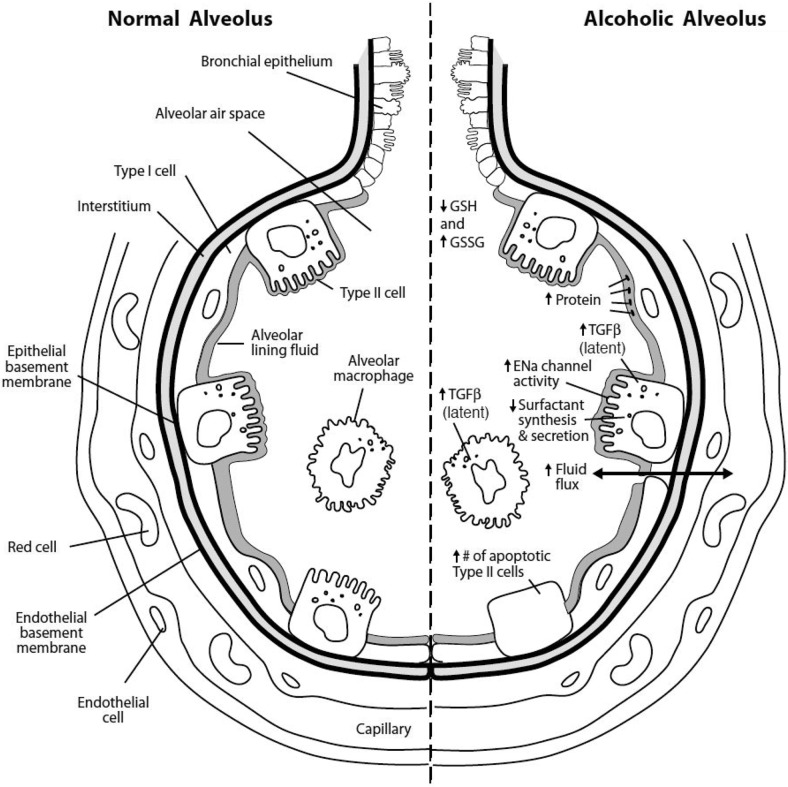Figure 1.
Basal changes in the alveolus as a result of chronic alcohol abuse. A variety of differences in the basal functioning of alveoli from patients with alcohol abuse compared with abstainers has been reported, which contributes to the propensity for adverse respiratory conditions described in these patients, such as ARDS. A normal alveolus is shown on the left, and the effects of alcohol abuse on an alveolus are on the right. Alcohol-related changes include lower concentrations of alveolar GSH and an increase in the proportion of GSSG; increased production of alveolar macrophage and type II cell TGF-β; increased protein in the alveolar space with enhanced fluid flux across the alveolar-epithelial membrane; and abnormalities of the alveolar type II cells including increased numbers of epithelial sodium (ENa) channels, decreased surfactant synthesis, and increased cellular apoptosis. (Figure reprinted with permission [58].)

